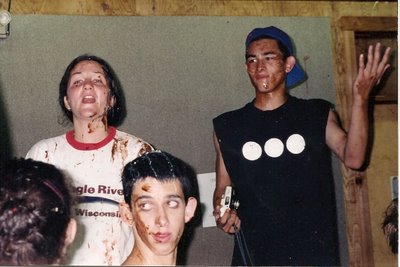Now that the summer is here, it’s hard not to reminisce about lazy childhood summers; the neighborhood swim club, the ice cream truck, and good times at the beach or on the playground. Then I got older and started working summer jobs, and not to say those weren’t good times, but they were often very intense and challenging. When I was in college, many of my friends got fancy-sounding internships or went traveling to other countries for jobs that made their resume sparkle.
Me? I worked at a sleep-away camp in the Midwest, throughout and even after college. I started as a bunk counselor for around twenty 16-year-old girls, then moved up a few years later to become the Division Head for all eighty 16-year-old boys and girls and the ten college student counselors assigned to them. I usually bring up this experience when I am interviewing for a new job because, as ironic as it may seem, my summer camp job prepared me for project management better than any fancy-sounding internship could have.
Sounds crazy, right? Well, let me tell you a little bit about how our summer went. In the beginning, our activity schedule was a clean slate. We would have a general idea of what needed to get done, but not a lot of details about how it would all happen. There were blocks of time for group activities, and special interest groups like Art, Woodworking, Sailing, Dance, etc. There were also blocks of time during the daytime and evening that were purposely left open for our group to create programming. My group of counselors and I would come up with ideas for programs first, then when the kids arrived, we’d break them into planning groups and plan programs together. It was a great way for the 16-year-olds to take ownership of their summer.
So where’s the project management in all of this? The summer was our “project” and making sure it was a fun, healthy, and safe one was our goal. The senior staff met for about ten minutes each day (does this sound like your team?) to run through the day’s schedule and make sure there were no conflicts with meeting spaces or requests for specialty staff. Then each division had 45-minute daily staff meetings and each counselor left the meeting with specific tasks assigned to him/her.
What did we use to track task progress, risks, and any other issues? Remember that there was no email, no instant messaging, and no web-based project management tools like LiquidPlanner (gasp!) available. When I think back to it now, I wonder how I got by just on paper, notepad, and clipboard. Of course, we didn’t have any remote teams and different time zones to deal with, but we did have tight deadlines, outside resources that we needed to coordinate with, and specialty staff and spaces that were shared among different groups. In the end, what made it all work was a lot of face-to-face communication and constant check-ins with the staff and kids. The daily staff meetings were critical, and when needed, we would check-in quickly at meals and other times of day. Did every project launch perfectly? Not at all, but in most cases it was very clear to us why it didn’t and what we could learn from it.
Did we have conflicts between kids, counselors, and other staff? All of the time. I think I got an incredibly valuable experience honing my soft skills. It took a lot of patience and a lot of creativity sometimes to make sure people got along and worked together.
So next time you or your teenager is looking for a summer job, don’t dismiss what might sound like a “simple” or “low-level” job. There are valuable project management lessons to be learned in even the most unexpected places.







